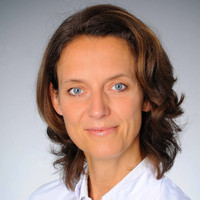Aim: To elucidate if modulation of the IL-17 immune response with antibodies and mesenchymal stem cells (MSC) delays initiation, progression and dissemination of pancreatic ductal adenocarcinoma (PDAC).
Model: In situ electroporation of oncogenic plasmids into the tail of the pancreas establishes a mouse model of resectable PDAC. Transfection of Sleeping Beauty based transposon plasmids facilitating KRas-activation, p53 inhibition as well as p53 mutation induces the formation of a single PDAC nodule within 3-5 weeks. Additional Akt2-activation results in accelerated local infiltration, neural invasion and development of metastases. The clinical course of this model and histologic tumor examinations closely resemble the human disease.
Analysis: Immunofluorescence microscopy, flow cytometry and ELISA will characterize the IL-17 immune response in this PDAC model. To assess its clinical relevance a combination of monoclonal antibodies directed against IL-17RA and the cytokines IL-17A and IL-17F will be applied at different time points. We expect that pharmacologic inhibition of the IL-17 immune response will improve survival.
Mesenchymal stem cells (MSC) improve survival in this PDAC model and are known to modulate the IL-17 immune response. We will assess the effect of MSC on the IL-17 immune response on a cellular level. To analyze the mechanism of action we will test if MSC-mediated IL-10 controls IL-17 producing cells.
If modulation of the IL-17 immune response improves survival, this project will prepare two novel therapies for PDAC. Firstly, antibody mediated IL-17 inhibition can be transferred directly into the clinic, in particular as anti-IL-17 antibodies are already approved to treat psoriasis. Secondly, a cell based therapy using MSC for PDAC comes within reach. MSC can be readily applied to treat PDAC because they are already employed successfully in various clinical trials to treat other diseases.
Information from this funding period will not be updated anymore. New research related information is available here.

Dept. of General, Visceral and Tumor Surgery
assoc. CMMC Research Group
christiane.bruns[at]uk-koeln.de
show more…+49 221 478 4801
+49 221 478 32400
Dept. of General, Visceral and Tumor Surgery
Kerpener Str. 62
50937 Köln
Curriculum Vitae (CV)